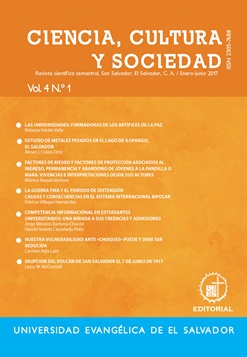The Cold War and the Détente Period Causes and Consequences in the International Bipolar System
DOI:
https://doi.org/10.5377/ccs.v4i1.6022Keywords:
Distension, Cold War, Superpower, United States, Soviet Union, ContentionAbstract
During the second half of the 20th century, the United States and the Soviet Union led an arms race that seriously threatened global security. Facing the urgent need to reduce tensions and generate conditions of mutual trust within the framework of the Cold War, relations between the two superpowers experienced a period of détente. This period was mainly characterized by the arrangement of bilateral relations that modified international dynamics and helped to create cordial treatment, commitment and mutual cooperation. The stated matter led to a reconsideration of the foreign policies of the two great powers in the context of the struggle for the dominance of one system over another. This political reconsideration impacted Europe, Latin America and the Middle East, evidencing further interests of the two superpowers on the world’s great panel
Revista ciencia, cultura y sociedad Vol. 4 No. 1 enero-junio 2017; 25-37
Downloads
44249
Downloads
Published
How to Cite
Issue
Section
License

This work is licensed under a Creative Commons Attribution-NonCommercial 4.0 International License.
The authors give to the copyright to the journal Ciencia, Cultura and Sociedad, and copyright in all forms and media, to be notified of acceptance of your article. The authors can publish their articles in another journal after a semester published in this volume. The content of the articles is the sole responsibility of the authors. To refer to the articles correctly quote the authors.

Ciencia, Cultura y Sociedad articles are published in open access and are under a Creative Commons Attribution-NonCommercial 4.0 International License.

